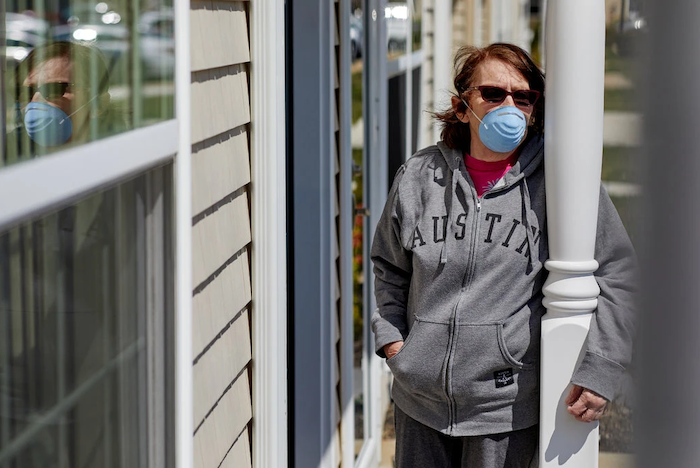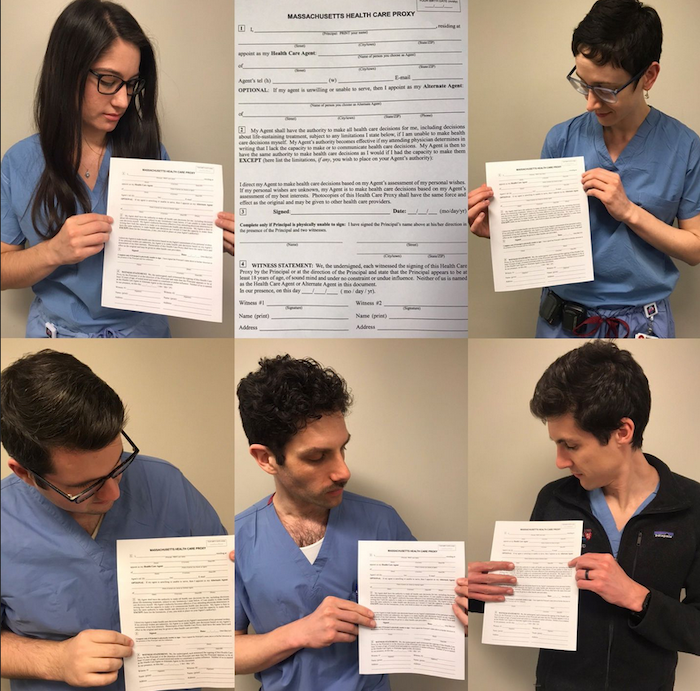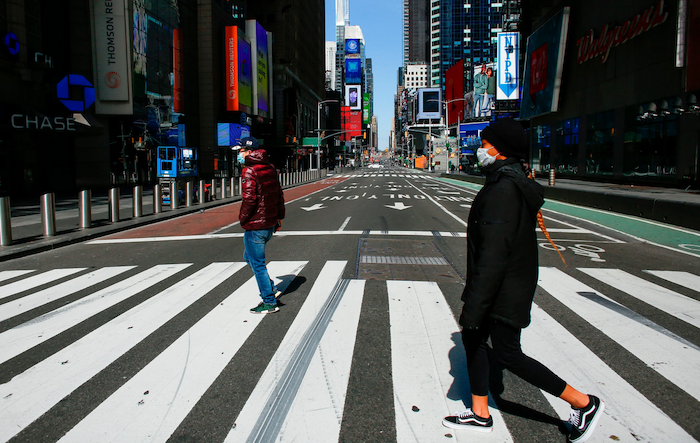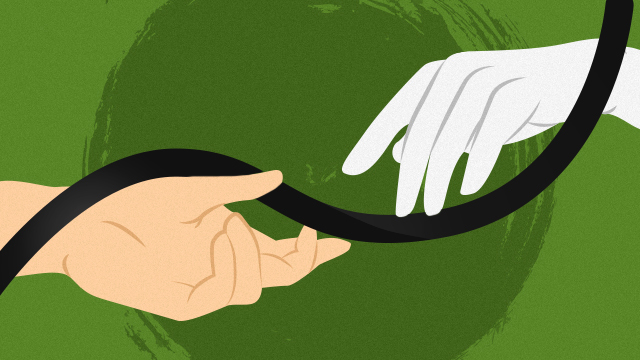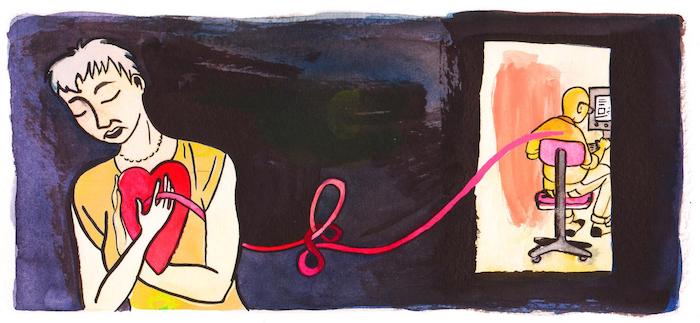The coronavirus means more people are dying alone in ICUs. Families are having to make abrupt decisions at a distance about terminal care. Palliative care specialists try to adapt.

By Will Stone
TRANSCRIPT
Palliative care is a specialized branch of medicine that focuses on relieving pain and symptoms in seriously ill patients and those who are dying. Will Stone reports that the coronavirus pandemic has disrupted this kind of care at a time when families are facing abrupt decisions about end-of-life treatment.
WILL STONE, BYLINE: Before coronavirus, Darrell Owens rarely worked in the emergency room. Now he’s there daily. Owens is a nurse practitioner and directs the palliative care program at a hospital run by the University of Washington in Seattle. Owens used to visit with families in quiet conference rooms or at the bedside.
DARRELL OWENS: Cancer patients, stroke – regular routine palliative care patients.
STONE: Back then, he could grab a chair and scoot up right next to the patient and take his time. Palliative medicine focuses on patients’ quality of life and relieving symptoms of serious illness, like pain and anxiety.
OWENS: We are obligated – as much as we are to try to save people’s lives, we are as obligated to save their deaths.
STONE: Across the country, coronavirus has disrupted this sacred task. Owens is adapting. The ER now calls him a lot. He sees every coronavirus patient who’s older or at risk for complications.
OWENS: The conversations are more abbreviated than they would be because, one, you’re behind a mask. You’re in a loud room, completely gowned up, and so you want to limit your exposure.
STONE: All that makes it harder to talk through a patient’s chance of survival and big questions, like do you want to be resuscitated? Do you want to be put on a ventilator? Because of the pandemic, relatives are usually barred from the hospital.
OWENS: You cannot underestimate the stress on family members who cannot visit and now, in a crisis mode, trying to talk this through over the phone.
STONE: It’s this painful new reality that Rich and Rob Mar and their sister Angie Okumoto faced when they lost both of their parents to coronavirus last month. Their mother Elizabeth was in her early 70s, still running a Hawaiian restaurant with her daughter. Rich says she liked to give out hugs.
RICH MAR: One of those people that just quickly made friends and made an impression on everyone.
STONE: They say their mother was in good health before contracting the coronavirus. They brought her to the ER when her breathing got worse. She was asked, did she want to be resuscitated, if necessary, and put on life support? Angie says they didn’t hesitate to say yes.
ANGIE OKUMOTO: You know, yeah, of course. We just had no idea what this virus was going to do.
STONE: They just assumed she would pull through.
MAR: I didn’t know that was the last time I was ever going to talk with her.
STONE: Before they knew it, she was sent to the ICU.
OKUMOTO: For 14 days on the ventilator, she was alone.
MAR: Right. Right.
OKUMOTO: Alone for 14 days.
MAR: That’s the part that hurts the most and what will haunt me forever.
STONE: Near the end, they did get to see her, but she was sedated.
MAR: We were all gowned up. And so we’re, like, trying to talk to her and let her hear our voices.
STONE: Meanwhile, their father Robert was also getting sick. He was 78, an engineer.
MAR: My dad was more of the analytical type. He can give you a practical solution for everything.
STONE: They took him to the same hospital as his wife, where he made his wishes very clear.
OKUMOTO: My dad, from Day 1, he said he did not want to be on life support.
STONE: So Darrell Owens, the palliative care director, started managing Robert’s care.
MAR: He was super compassionate, telling us the facts and being straightforward with us.
STONE: Because Robert had decided against aggressive treatment, he was never moved to the ICU. He was able to have a few visits with his kids, and he wasn’t on a ventilator, so they could talk to him and text. Their father died on March 27, not long after their mother.
MAR: The way he wanted to.
OKUMOTO: With dignity.
MAR: With dignity, yeah. That was very important to him.
STONE: The family is grateful to the nurses and doctors. Still, they grieve those visits they never had. Angie never got to say goodbye before her mom was intubated.
OKUMOTO: If I got to be bedside to my mom earlier, holding her hand and just being present – and that we’ll never know, right? Like, that’s what sucks.
STONE: It’s an experience of death that more families are coming to know – loved ones dying alone and out of reach from a new and poorly understood virus. In New York City, Dr. Diane Meier works in palliative care at Mt. Sinai School of Medicine. During the worst of the surge, the hospital set up a palliative care hotline for families.
DIANE MEIER: So this is completely unprecedented. All the cues you normally get with face-to-face are very hard to pick up over the phone.
STONE: Mt. Sinai doctors are even calling elderly patients at home to learn their wishes just in case they do get infected.
MEIER: Many of our patients had been thinking about it a lot, incredibly relieved that we had reached out to them.
STONE: Meier says it’s a new way of doing palliative care when faced with a virus that moves so fast. For NPR News, I’m Will Stone in Seattle.
Complete Article ↪HERE↩!

